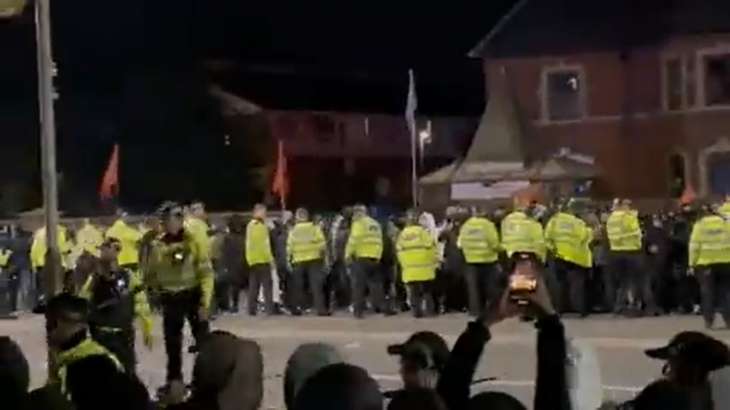The false allegations have put the wider Hindu community in the UK at risk of hate, assault and vandalism.
London: The Henry Jackson Society’s Centre on Radicalisation and Terrorism published their investigation into Hindu-Muslim civil unrest in Leicester: “Hindutva and the Creation of a False Narrative”, by Charlotte Littlewood. Contrary to the UK mainstream media narrative, the report found no evidence of any BJP, RSS or “Hindutva extremism” interference. The report concluded that a Hindu minority from Diu and Daman in Gujarat in a predominantly Muslim region (LE5) of Leicester were prevented from expressing their religious beliefs. The report described this as a breakdown in social cohesion and integration, and a failure of engagement with communities by Council officials and police.
The false allegations have put the wider Hindu community in the UK at risk from hate, assault and vandalism. The conflict has since attracted attention from the sub-continent, with persons in India and Pakistan spreading hate online. International agitators and influencers were brought in to foment trouble, one who has been convicted on terrorism charges, and one who praised the suspected mastermind of the Mumbai bombings and one who has offered prayers to the Taliban and was reported to have offered prayers to the brothers of an ISIL fighter, these inflamed community tensions proliferated fake news. Mainstream media outlets relied on two of the noted influencers providing misinformation.
Hindu and anti-Hindutva Muslim marches were held on 17/09/22-18/09/22 in Leicester and an anti-Hindutva Muslim march in front of Smethwick temple in Birmingham on 20/09/22. The Muslim protestors saw themselves as marching against Hindutva attacks on the Muslim community and the Hindu protestors saw themselves as marching for their right to live safely in their neighbourhoods, following a violent attack on a Hindu festival and days of vandalism against their properties and vehicles. Calls were made via social media to increase the number of “brothers” on the anti-Hindutva Muslim march; many individuals are named in the report. One of the instigators of the anti-Hindutva Leicester march is a man who praised a wanted terrorist and who claims to speak with the crime syndicate D company. The social media influencers who peddled narratives of Hindutva extremism include a convicted terrorist offender and one has been a visitor to Pakistan.
Littleton’s report is well researched and evidenced. It concludes with recommendations for broadcasters and Offcom, Leicester City Council, the Independent Advisor for Social Cohesion and Resilience, the Independent Commission for Countering Extremism and Prevent—the government-led programme that aims to stop individuals from becoming terrorists.
The Mayor of Leicester, Sir Peter Soulsby, has commissioned a review in the wake of the Muslim-Hindu community disorder, led by Dr Chris Allen, Associate Professor in Hate Studies at the University of Leicester, who will work alongside a research team from University of Leicester and De Montfort University. The findings will be published in March 2023.
Dr Allen said he is aware that the findings of the inquiry might not prove popular with some people and lead to a backlash. He said: “I know that this will probably put me in the line of fire, I know that it’s going to put Peter Soulsby in the line of fire and I know that it’s going to put the city in the line of fire.”
The HJS-Littleton report will be a valuable starting point.

